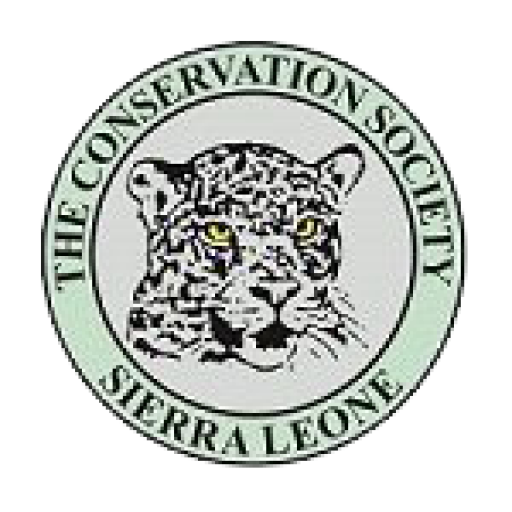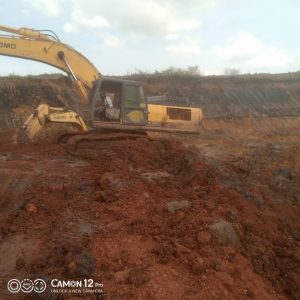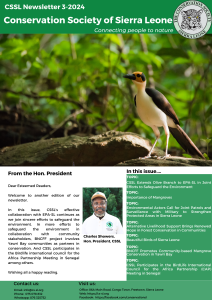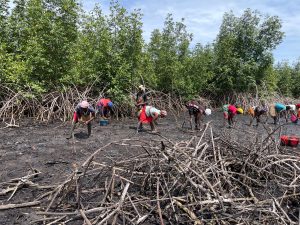“Those who should be protecting the forest are the ones encroaching and selling land now. Yes, we’ll continue campaigning, but we are just going around in the same circle. It’s manifesting on us; we’re in June, but there is no rain. These are all signs that show that we have to do more to protect our forests and our lives…” This was a lamentation of one of the participants at a day-long Roundtable Conference organised by the Conservation Society of Sierra Leone (CSSL) on World Environment Day at the Council of Churches Conference Room in Freetown.
This year’s World Environment Day campaign focused on land restoration, desertification and drought resilience under the slogan: “Our land. Our future”. The Roundtable Discussion, was therefore, an opportunity to bring out the key issues and to generate practical solutions to help reverse the current environmental trends in Sierra Leone and the global community. The conference brought together various organizations and government stakeholders including the Ministry of Environment and Climate Change, Ministry of Lands, Ministry of Fisheries, Ministry of Health, Save the Children, Namati, Green Scenery, and the media among a host of others, to address pressing environmental issues affecting Sierra Leone and the global community.
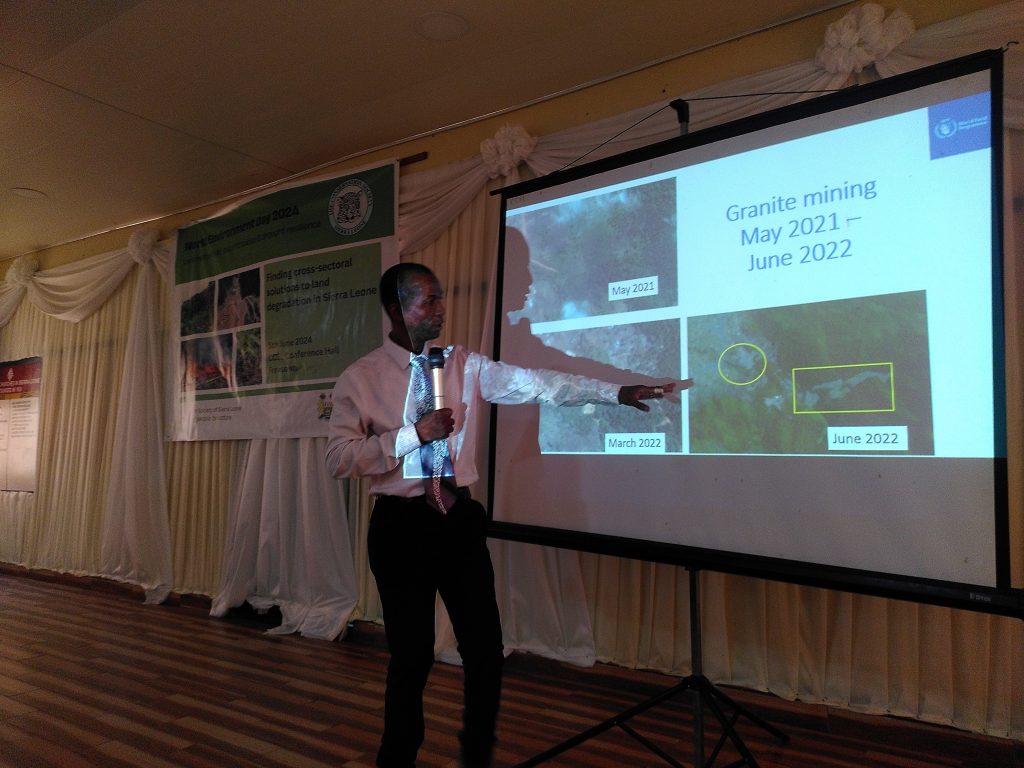
Edward Sesay, Head of Programmes at CSSL, who moderated the engagement, underscored the imperative of environmental protection and the implementation of sustainable practices to mitigate the impact of climate change. He emphasized the importance of community-based initiatives in fostering environmental stewardship and securing a sustainable future for all. He reminded actors to recognize their collective responsibility in safeguarding the environment and mitigating the adverse effects of environmental degradation. Edward further highlighted the prevailing realities facing Sierra Leone, including the indiscriminate and unregulated deforestation, dwindling forest cover, and unpredictable weather patterns worsened by daily human activities.
Abdul Kaprr Dumbuya, the Communication Manager of CSSL, emphasized the urgency of addressing the adverse impacts of environmental degradation on weather patterns and rainfall distribution. He cited examples of coastal communities that are currently facing some of the most serious impacts of climate change, including Yaliboya and Plantain Island to further illustrate the tangible consequences of ecological imbalances. He disclosed the fast pace in which these communities are submerging into the sea due to coastal erosion and rising sea levels over the last decades.
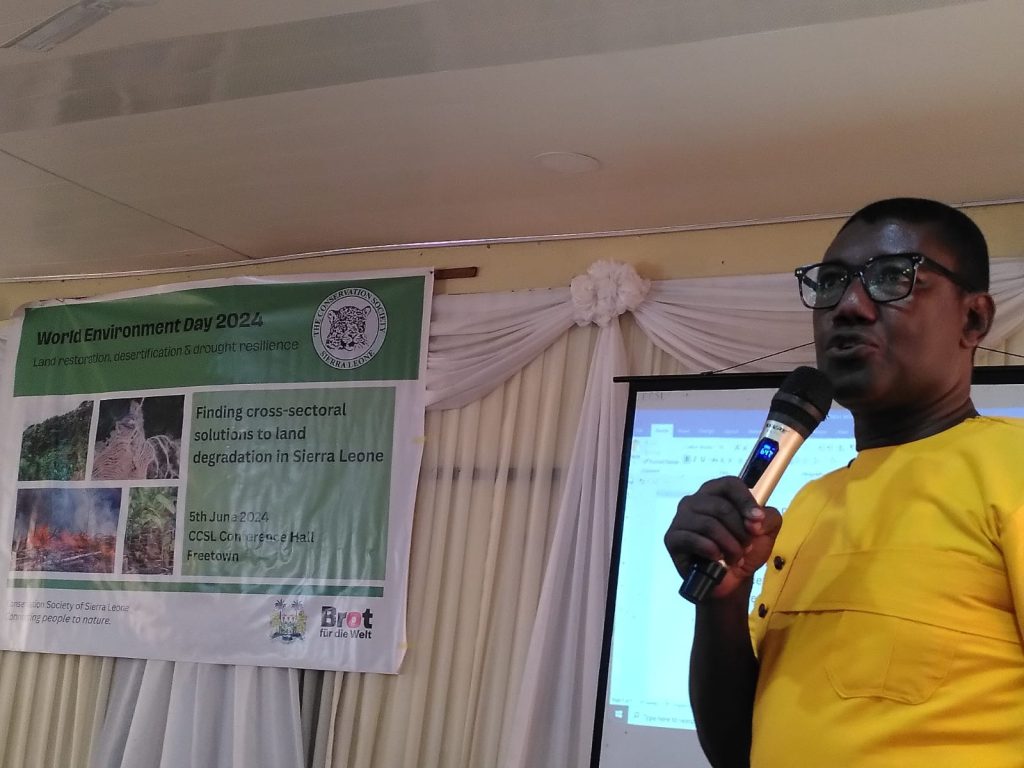
Yayah Kamara Keh, Assistant Director of Lands, Housing and Country Planning, delved into the critical issue of deforestation as a primary threat to Sierra Leone’s lands, advocating for collaborative efforts with the Ministry of Environment to initiate tree planting initiatives across the country. He stressed the collective responsibility of all citizens to engage in conservation efforts and protect the environment for sustainable development and resilience against climate change-induced challenges.
John D. Brima from the Ministry of Environment and Climate Change highlighted the shared responsibility of all actors in protecting the environment and advocated for responsible land-use practices to mitigate deforestation in Sierra Leone. He encouraged all present to continue campaigning against indiscriminate tree felling for minor construction purposes. Brima also emphasized the crucial role of sustainable farming practices in maintaining ecological balance and food security.
Regarding the legal frameworks governing environmental protection, representatives from NAMATI, Green Scenery and Culture Radio, among others, reiterated the relevance of enforcing existing laws without bias to curb the current spate of land encroachment, especially in and around protected areas. These sentiments were re-echoed by various other participants throughout the deliberations. “…government institutions are fond of undermining the operations of each other due to overlapping mandates and ineffective collaboration. These are some of the factors seriously responsible for environmental degradation”, the representative from Namati asserts.
At the end of the engagement, actors called for government to urgently review the current overlapping mandates in most ministries, departments and agencies, and ensure a sense of collaboration among state institutions within the environment sector. The actors also called on the government to address the issue of mining in protected areas and national reserves. “These are protected areas, and must be respected as such by all and sundry”, Abdul Kaprr Dumbuya emphasises.
The call to action was resoundingly made by all present, underscoring the urgent and dire need for increased collaboration and cooperation among state and non-state actors to conserve and protect the country’s natural resources for the survival of current and future generations.
